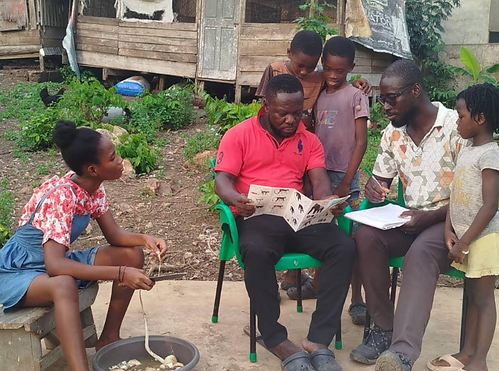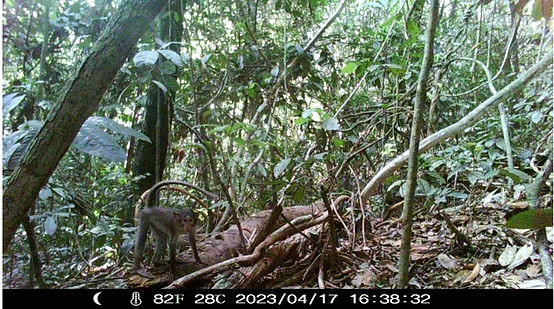






Research
The West African Primate Conservation Action (WAPCA) Research Group is a collaborative network of universities and zoological institutions from both primate range countries and non-range countries.





The group is composed of primatologists, ethologists, postgraduate students, and academics who work together toward a shared goal: advancing our understanding of primates through applied scientific research.
By collecting data from both captive and wild populations, the group provides valuable insights that improve conservation strategies and enhance the care provided to these species across different environments.
WAPCA is engaged in a range of research initiatives aimed at enhancing primate conservation and understanding the ecosystems they depend on. These include:
-
Behavioural Monitoring: Studying primate behaviour at both the Endangered Primate Breeding Centre (Accra) and the forested enclosure (Kumasi) to ensure high welfare standards.
-
Community Socio-economic Studies: Assessing how conservation initiatives such as Community Resource Management Areas (CREMAs) affect local communities and influence species conservation.
-
Primate Range and Habitat Surveys: Conducting fieldwork to update the known distribution of endangered species such as the white-naped mangabey.
-
Technology in Monitoring: Exploring tools such as camera traps, audio recorders, and machine learning to improve monitoring efficiency.
-
Translocation Planning: Investigating the social, ecological, and genetic factors necessary for the successful release of captive mangabeys into the wild.
These studies guide WAPCA’s evidence-based conservation strategies across West Africa.
If you are interested in collaborating with us on your research, please contact us.



